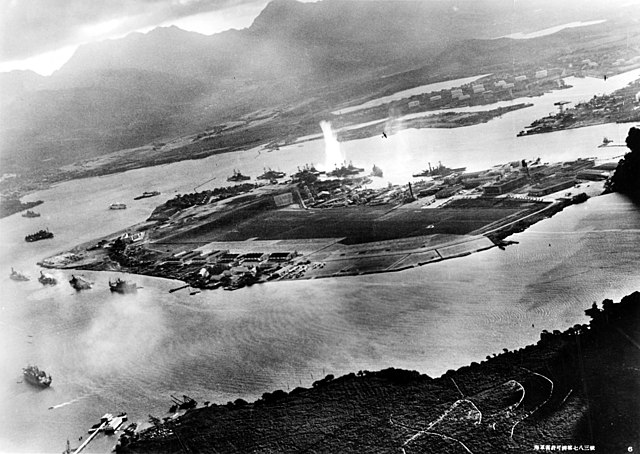Attack on Pearl Harbor: Difference between revisions - Wikipedia
 Article Images
Article Images
Content deleted Content added
Tags: Reverted Mobile edit Mobile web edit |
Remsense 43,469 edits |
||
Line 92: [[Japanese declaration of war on the United States and the British Empire|Japan declared war]] on the United States and the British Empire later that day (December 8 in [[Tokyo]]), but the declarations were not delivered until the following day. [[United Kingdom declaration of war on Japan|The British government declared war on Japan]] immediately after learning that their territory had also been attacked, while the following day (December 8), [[United States declaration of war on Japan|the United States Congress declared war on Japan]]. On December 11, though they had no formal obligation to do so under the [[Tripartite Pact]] with Japan, [[German declaration of war against the United States (1941)|Germany]] and [[Italian declaration of war on the United States|Italy]] each declared war on the United States, which responded with a declaration of war against [[1941 United States declaration of war upon Germany|Germany]] and [[United States declaration of war upon Italy|Italy]]. While there were historical precedents for the unannounced military action by Japan, the lack of any formal warning, as required by the [[Hague Convention of 1907]], and the perception that the attack had been unprovoked, led then-[[President of the United States|President]] [[Franklin D. Roosevelt]], in the opening line of his speech to a [[Joint Session of Congress]] the following day, to famously label December 7, 1941, "[[Day of Infamy speech|a date which will live in infamy]]". {{TOC limit|limit=3}} | |||